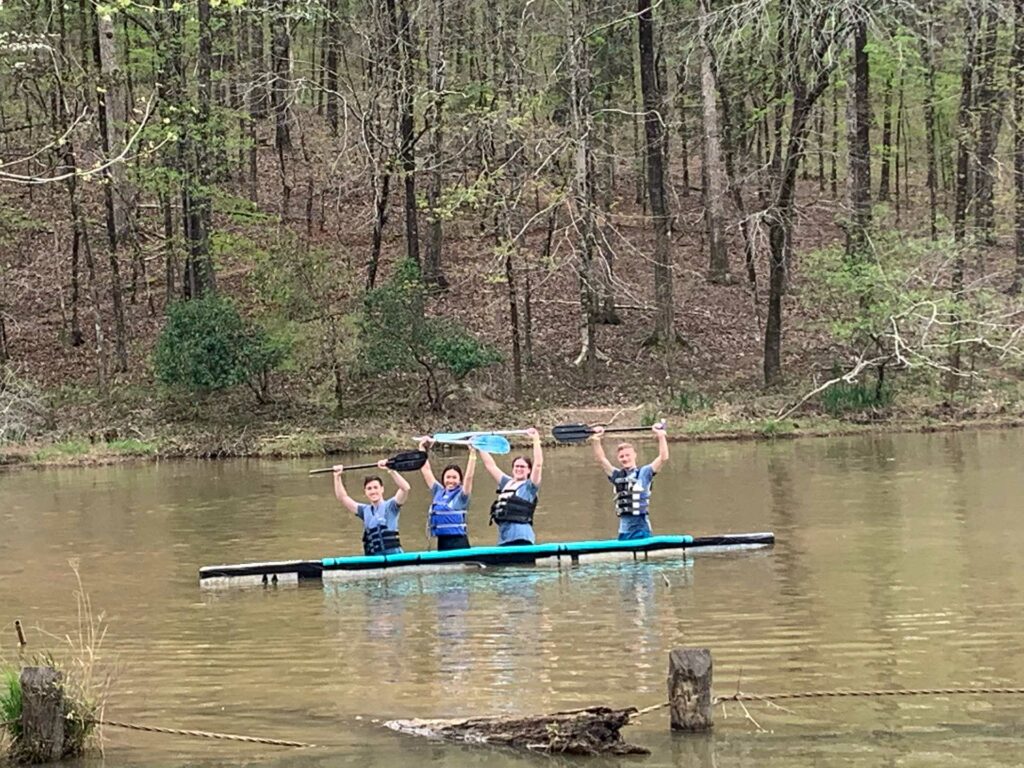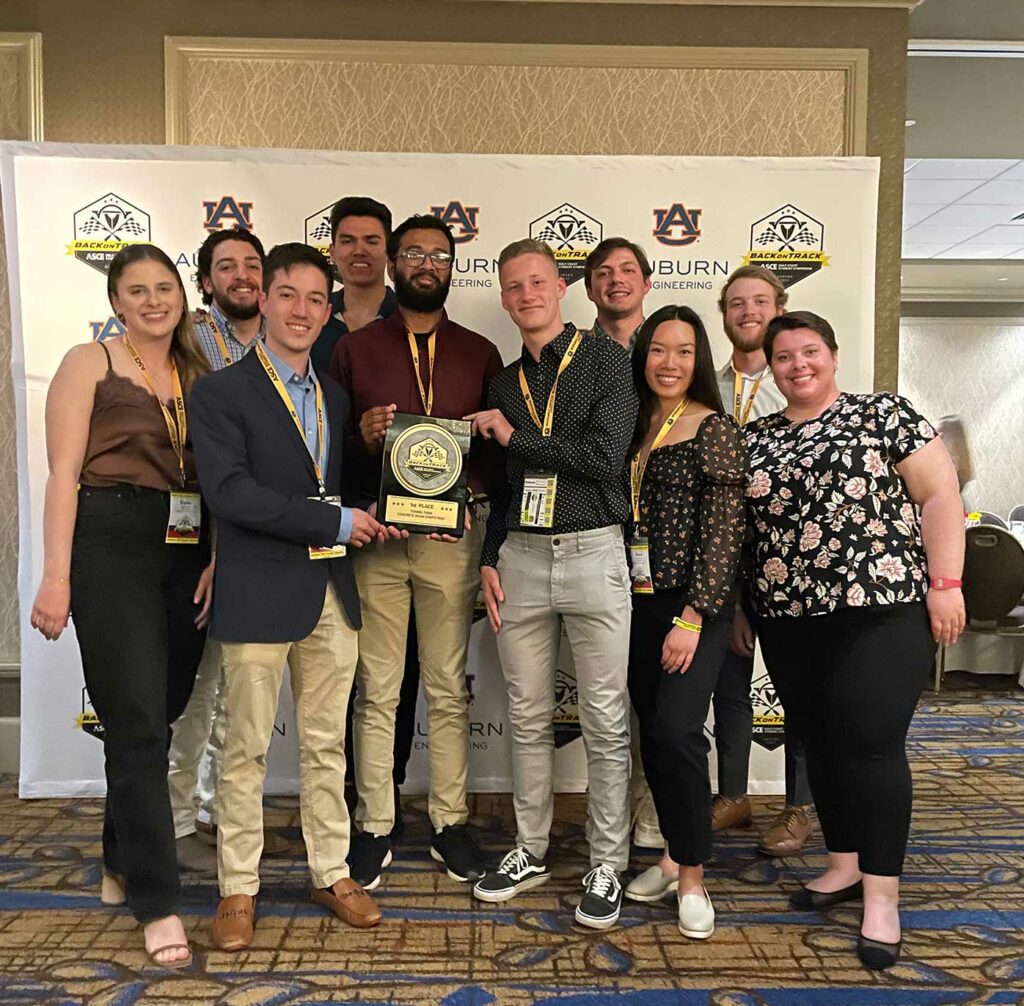A team of civil engineers from McNeese State University’s American Society of Civil Engineers (ASCE) chapter have brought back a McNeese tradition – building a canoe out of concrete for the ASCE’s Gulf Coast Student Conference, hosted this year by Auburn University in Auburn, Alabama.
The concrete canoe team was composed of six members, all civil engineering majors — team captain and ASCE vice president Juan Castano, ASCE president Alexis Nguyen, Pavel Kraus, Tristan Soileau, Quazi Rumi and Bethany Ervin.
Castano says that bringing a team from McNeese back to the competition was one of the chapter’s main goals – but the team faced challenges from the outset.
“The last time a team from McNeese participated was actually my first year at McNeese in 2018 and I didn’t have the opportunity to participate back then,” he says. “All of the people involved with the last canoe have graduated so it was the first time any of us had worked on something like this, and we had to start from scratch.”
The challenge of the canoe lies in the material – it’s not enough to simply make a canoe that doesn’t sink. During one part of the competition, the canoes are fully submerged and must float back to the surface unassisted so the overall density has to be lighter than water. The canoe must also be strong enough that it can support four rowers, who race it against the other teams during another step of the competition.
“The way to make it lighter comes from the aggregate in the mix,” says Castano. “Instead of regular crushed stone, you use lighter aggregates within the parameters of what’s allowed in the competition. For our canoe, we used expanded shale and glass, as well as chemicals that produce tiny bubbles that make the concrete lighter without making it weaker or letting water into the concrete.”
They used a variety of trials and mixes before they settled on their formula, as well as conducting structure analysis to try and discover which design would be both the lightest and most durable.
After months of work, the team – including rowing volunteer and biology major Blythe Bolton – loaded up their canoe, the “Hurricanoe,” and traveled to Alabama to go head-to-head against 14 other teams from across the South. While there, they also had the chance to network with and learn from other teams.

“It was great experience going there – it was the first conference we’d been to in person since COVID, and it was great to check out everyone’s canoes and professors and learn how everyone had a different approach,” says Castano.
The McNeese team placed 7th overall and outperformed both Auburn and LSU.
“We got the bragging rights,” says Castano. “We were the underdogs, and with the resources that we have available, I think we really did a great job. We learned a lot. Now, our canoe will be a steppingstone for next year’s canoe.”
With a total of 10 members attending the conference, McNeese students competed at a number of other competitions, including a surveying competition and a concrete beam competition, the latter of which McNeese placed first – thanks to a unique formula that used 100% recycled concrete, the subject of Castano’s senior research which he recently presented at Harvard University’s National Collegiate Research Conference.

Overall, Castano says that the experience helped him both understand and explore new ways of interacting with concrete, as well as gain experience in project management and leadership.
“In class, you learn about conventional concrete, so it was cool to experience using concrete in a whole new way. Where else would you get the opportunity to do this?” he says. “In that way, this was almost like a research project – there was so many aspects to it, we all learned a lot. I’m very grateful for the experience. My time at McNeese wouldn’t have been the same if I hadn’t been involved in ASCE.”
Want more stories like this one sent straight to your inbox every week? Sign up for our McNeese eNewsletter!
Original source can be found here.


 Alerts Sign-up
Alerts Sign-up